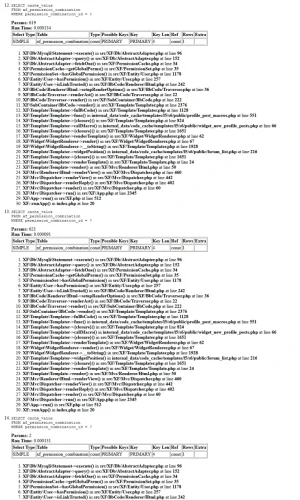Kruzya
Well-known member
- Affected version
- 2.2.7
This applies also to another places in XF where bb code renders and where user is passed as context, if
In

PermissionCombination isn't cached.In
XF\BbCode\Renderer\Html::setupRenderOptions(), XF\Entity\User::isLinkTrusted() is called, what causes fetching permission cache for required user. Profile post finder in XF\Widget\NewProfilePosts don't requests relation PermissionCombination for our user, what causes additional query for isLinkTrusted() call for every profile post:
Last edited: